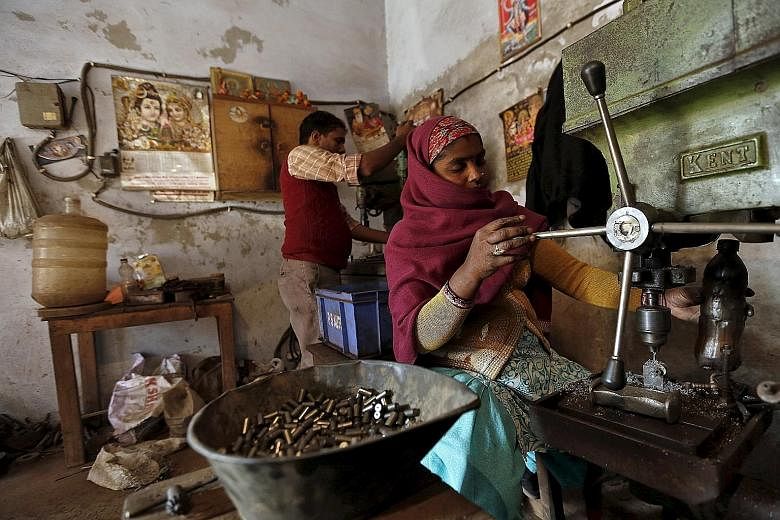FARIDABAD (India) • In a dingy factory in the sprawling industrial hub of Manesar in northern India, a plastic moulding machine malfunctioned, mangling Mr Visheshwar Prasad Singh's right hand as he made parts for a supplier to the country's major automakers.
Mr Singh was one of thousands of poor labourers, many temporary, who toil for 12 hours a day making auto parts for as little as US$3-a-day (S$4.30) to feed India's cheap car boom. "I had no training to use the machine and was asked to operate it one day," said the 51-year-old, who made parts for Ranee Polymers, a supplier to Honda Motor and Yamaha Motor.
Doctors reattached his hand, but after 14 months and three operations, it remains near-paralysed.
The plant manager at Ranee Polymers said the company did not allow workers to operate machines without proper training. There were only one or two accidents a year at the plant, which employs 250 people, Mr R.K. Rana said.
Honda Cars India, which sources from Ranee, was unaware of the accident as it did not occur during production of parts for the company, a spokesman said, adding that audits of incidents impacting safety or supplies were conducted.
Carmakers such as Maruti Suzuki India and Hyundai Motor see huge growth in India, set to become the world's third-largest auto market by 2020 as millions buy their first new car. Price tags can be as low as US$3,000 for a new Tata Motors Nano mini-car. India is also becoming a low-cost export hub for global carmakers such as General Motors and Ford Motor.
Consultant McKinsey estimates India's auto parts sector will grow fivefold to about US$200 billion by 2026, with exports rising to US$80 billion from US$11 billion.
As the sector expands, some of the work is sub-contracted to small factories operating on paper-thin margins, where poor contract workers often have little or no access to safety equipment or health benefits, industry experts say.
Carmakers say they conduct audits at their main suppliers, but it is not possible to check all the smaller companies. A Maruti spokesman said the company conducts safety and quality audits at its 400 direct suppliers.
A report by non-profit organisations Agrasar and Safe in India on workers' safety in the auto hub of Gurgaon and Manesar said most accidents occurred due to lack of training and safety inspections and poor machine maintenance.
Every year, more than 1,000 workers in the auto hub, most of them aged below 23, are injured seriously and lose their livelihoods, the report said.
"Factory owners train people for a day or two and get them to operate machines. It is all about meeting targets," said Mr Prerit Rana, founder of Agrasar, which helps to rehabilitate injured workers.
REUTERS

